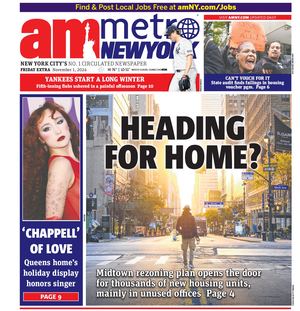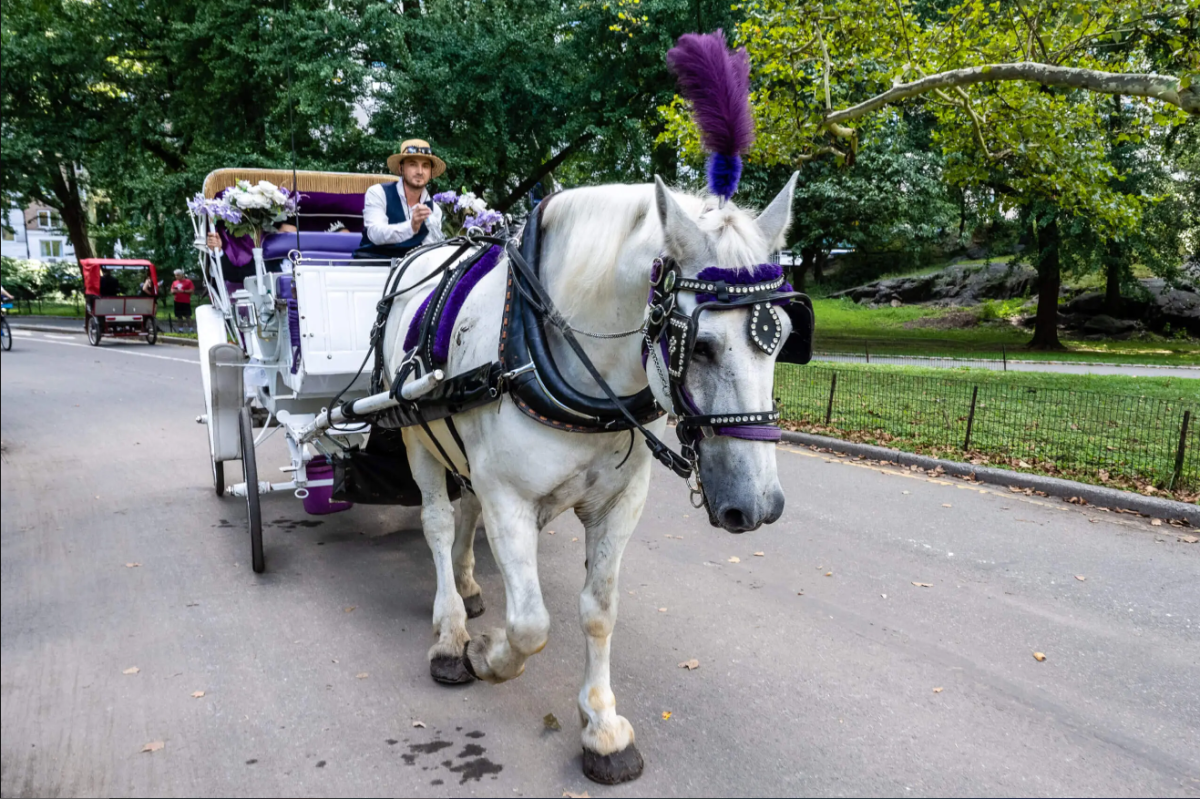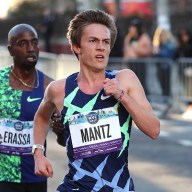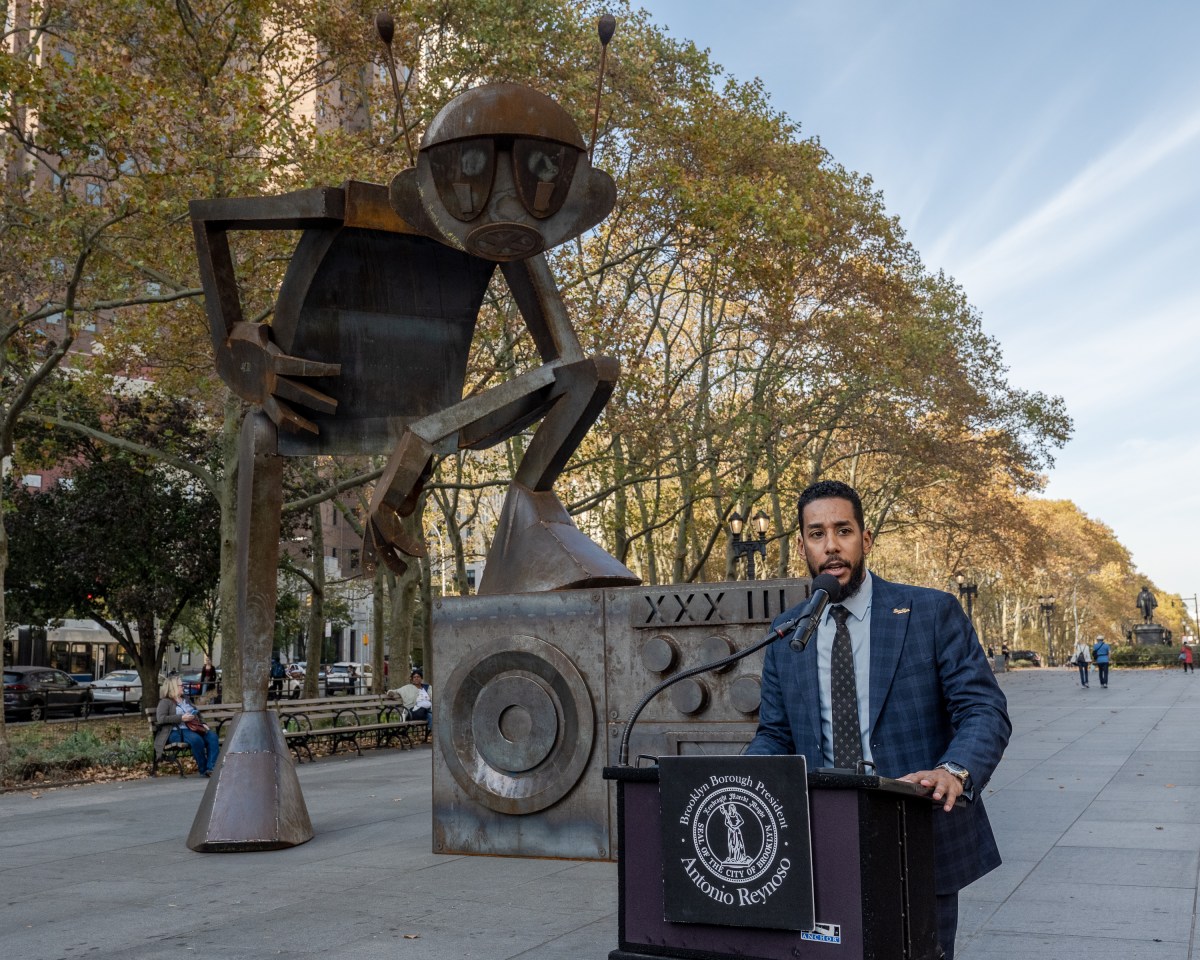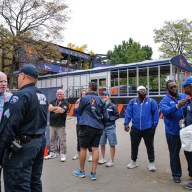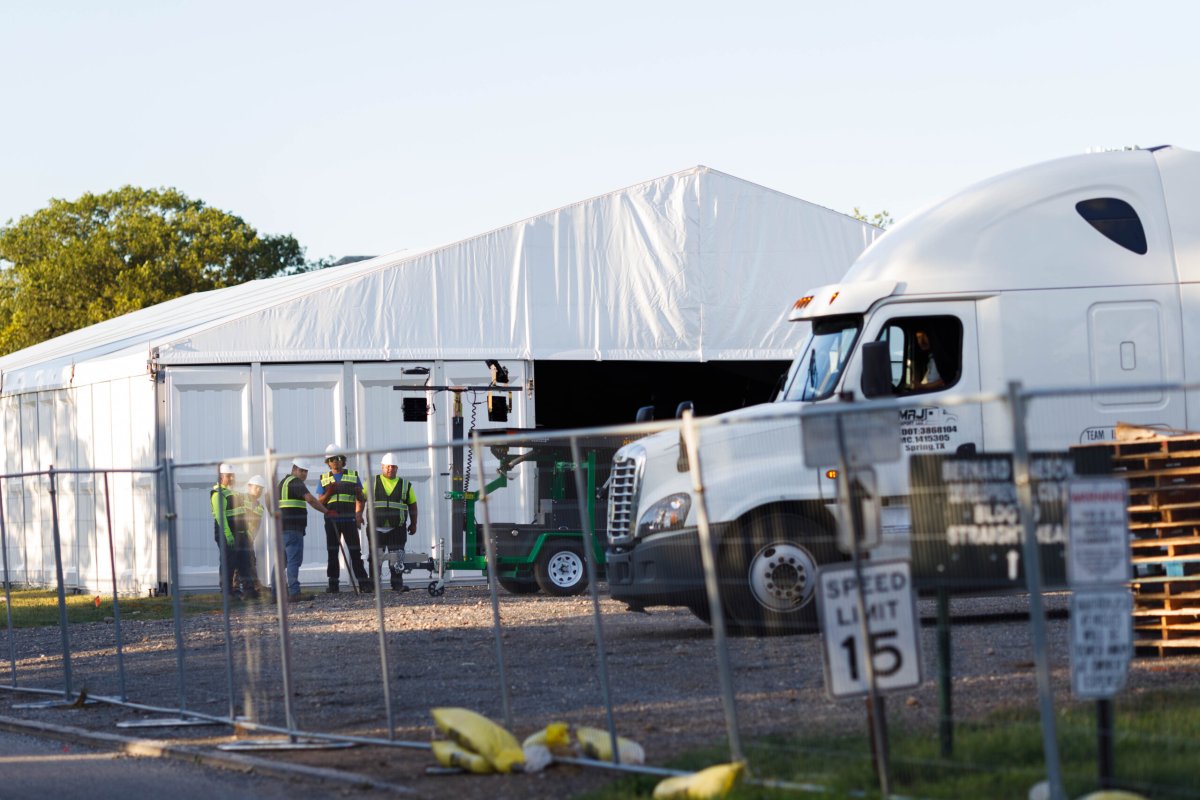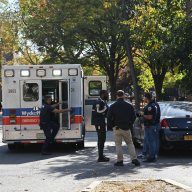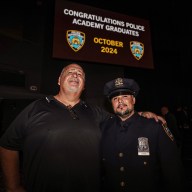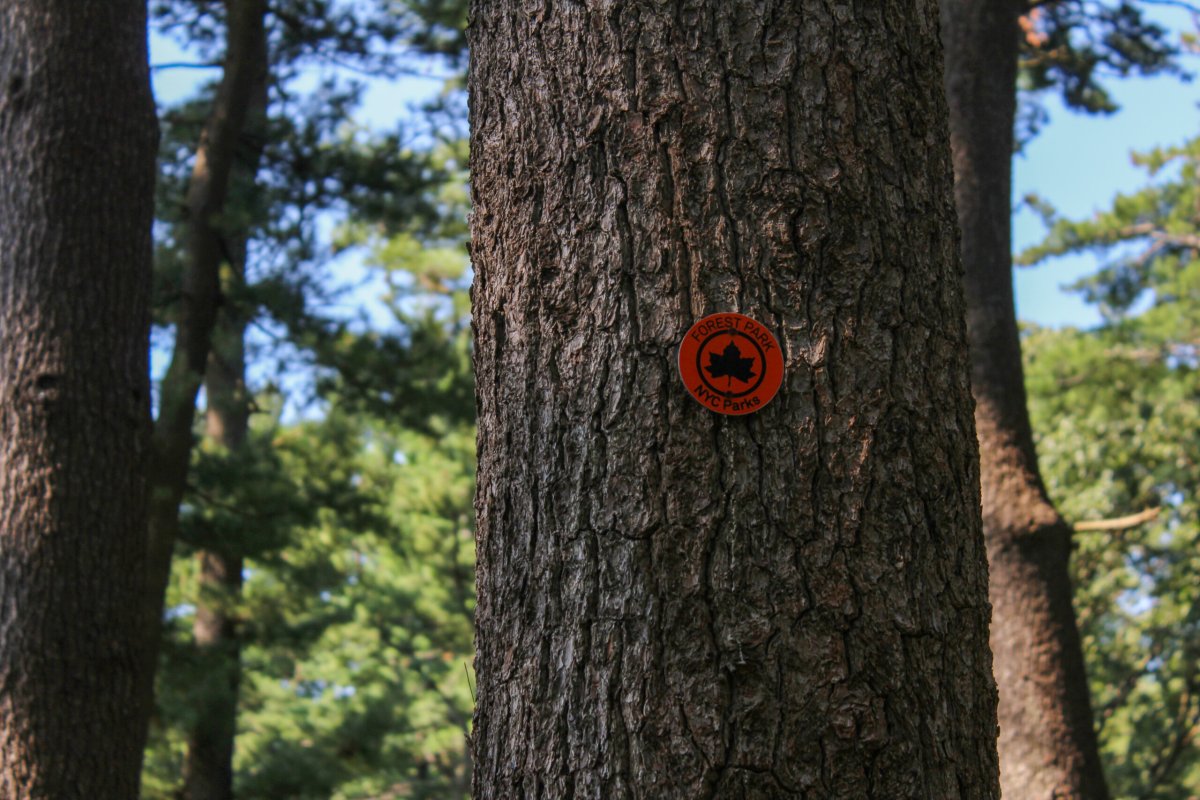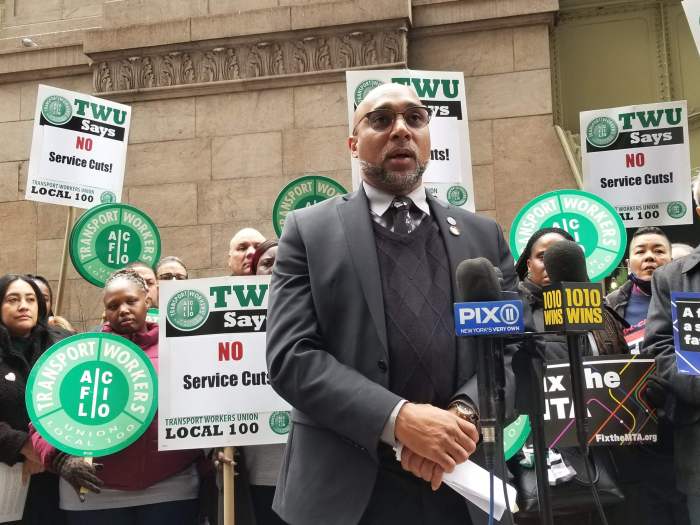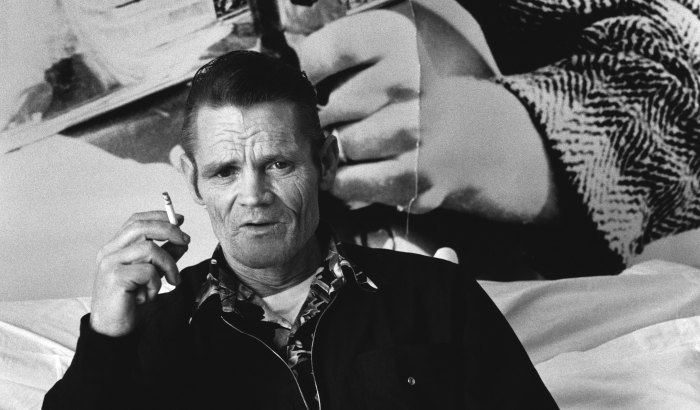City Council members are introducing a new version of a bill banning horse carriages from Central Park — but it will no longer feature incentives for drivers to switch to electric horseless carriages and retire their steeds.
Queens Council Member Robert Holden is introducing Intro 967 — the new bill dubbed “Ryder’s Law” in memory of the elderly carriage horse who collapsed on a Midtown street during a heat wave and died a few months later — in a bid to ban what he calls a “barbaric” industry from the five boroughs.
It would prohibit the issuance of new horse-drawn carriage licenses and entirely ban them from being operated in New York City by June 2026.
“The horse carriage industry is a barbaric industry that in the 21st century needs to go away,” Holden said in a statement. “With Ryder’s Law, we will finally free the horses, dismantle this cruel industry, and support the drivers in finding new, sustainable employment.”
The bill would prohibit selling the horses elsewhere into the carriage industry or to slaughterhouses, and would provide workforce development training for newly out-of-work carriage drivers.
But in a swift departure from previous versions of the proposal, the bill provides no incentives to drivers or the industry at large to replace their horse-drawn carriages with electric horseless ones, which had been a fixture of previous efforts as a means of preserving carriage jobs and building up political support for the move.
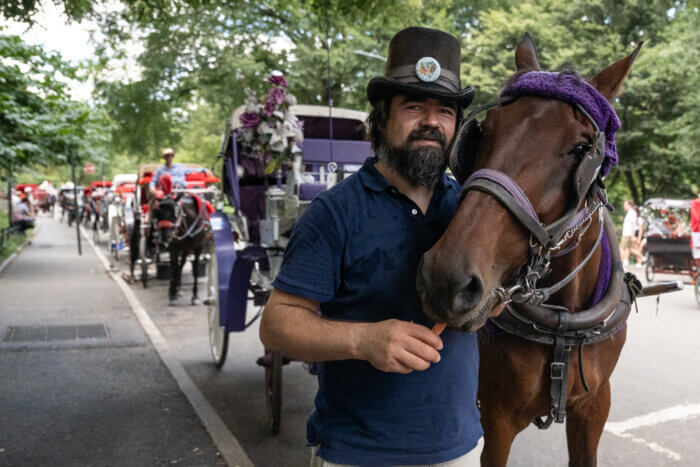
Proponents of the bill, which has 7 co-sponsors, say that’s because Transport Workers Union Local 100, which represents the drivers, has shown no willingness to negotiate the winding down of their industry.
“[The drivers’] union has shown a blatant disregard for [the horses’] welfare, and it’s time we stepped in to provide them with the help they deserve,” said Holden.
‘There’s either horses or no horses’
TWU, the powerful union representing subway and bus employees, has long opposed any move to restrict the city’s horse carriage industry.
Reached for comment, TWU carriage shop steward Christina Hansen said advocates for the bill don’t understand that for her and her colleagues, it’s not the carriages they’re attached to, but the horses.
“Horses are non-negotiable. We are horse people, that’s why we do what we do,” said Hansen. “Why would we negotiate with people that want to hurt workers, that want to take away our horses? There is no negotiating. There’s either horses or no horses, there’s no middle ground.”
Advocates have long decried the carriage industry as cruel to horses, and their calls reached an apex after the dramatic collapse of Ryder onto a Hell’s Kitchen street during an August 2022 heat wave. Ryder’s coachman, Ian McKeever, was seen on video pulling at his reins, yelling at him, and even whipping him as the equine lay exhausted on the street; he currently faces criminal charges for animal cruelty.
Veterinary exams confirmed that Ryder was twice as old as McKeever claimed to police and was suffering from a litany of ailments, including heart disease, decreased blood cell levels, and free fluid in the abdomen, and was likely suffering from cancer. He was euthanized a few months later.
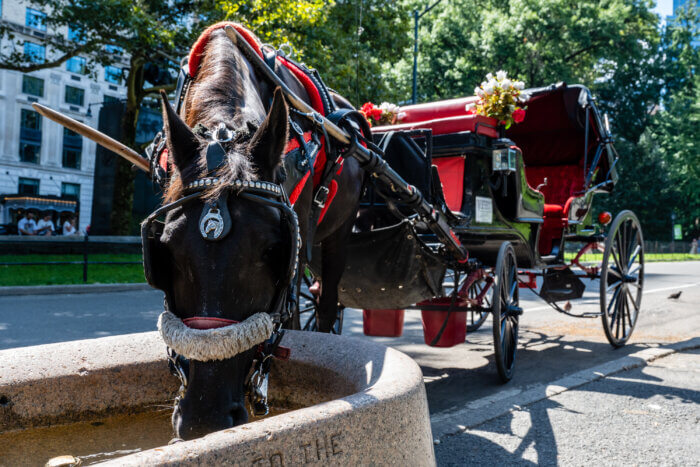
TWU says the industry has pursued reforms to horse welfare in the wake of Ryder’s demise, including a more robust veterinary care regime.
But the good times have been disputed by advocates.
Last month, the New York Post reported, a former city carriage horse named Bernard had been discovered and rescued from a livestock auction in Pennsylvania, where horses are often purchased by Canadian and Mexican slaughterhouses. Bernard is now living on a horse sanctuary in Missouri.
What’s more, carriage horses have been worked in Central Park during the city’s ongoing heat wave, putting their health at risk, according to New Yorkers for Clean, Livable, and Safe Streets (NYCLASS).
“We urge the City Council to swiftly pass this bill and honor the will of residents sick of seeing horses collide with cars, run wild into traffic, and collapse and die on our streets due to neglect and criminal abuse,” said Edita Birnkrant, executive director of NYCLASS. “The NYC Council can make this shameful cruelty a thing of the past and create a kinder and safer New York for all by passing Ryder’s Law, and the time to do it is now.”
The Health Department ordered work stopped once temperatures reached 90 degrees just before 1 p.m. Thursday, as per city law. The 90 degree stop-work threshold is lower than in other US cities, according to Hansen.
Read more: Six Die in NYC Auto Collisions Over Labor Day Weekend
